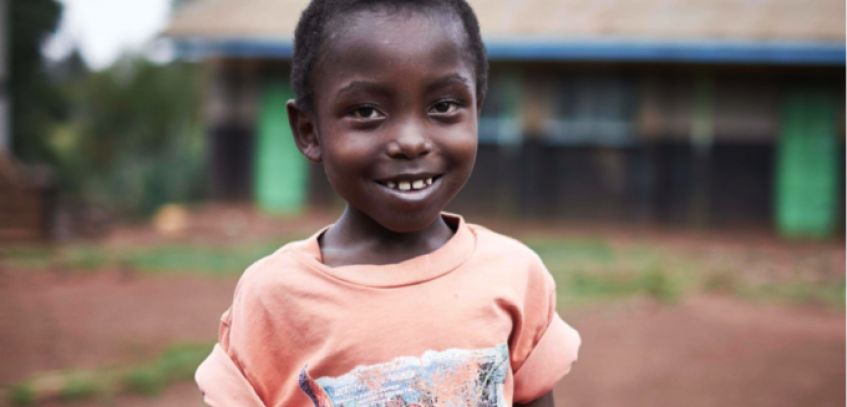There are few opportunities to go to school for children with disabilities, especially those growing up in slum areas. In partnership with the Danish Ministry of Foreign Affairs, Plan International is working with disabled children in 13 schools in Kenya’s capital, Nairobi, to ensure they receive a good education.
Everyone knows seven-year-old John at his school in one of Nairobi’s slums. John was born with brain damage and finds it difficult to remain in one place for any length of time such as the classroom. John is one of the pupils that Plan International is working with and it means a lot to his family, explains his uncle:
“We feel that the teachers understand his needs. They know it requires a special patience to help him learn new things. Before the project started here, we had nowhere to send him, he just had to stay at home. Today, he can write his own name.”
The project provides training to teachers in schools on how to include children with disabilities in education. They are taught how to model their teaching methods according to the child’s differing needs, some children have physical disabilities, while others, like John, have learning difficulties. This can be a challenge for teachers in Nairobi where class sizes are often in excess of 80, in John’s class there are 65 students.
“Children with disabilities have of course special needs, but we go to great lengths to ensure they are part of the school community and receive the same tuition as their classmates,” says teacher Lydia Wandaka, who is responsible for teaching children with disabilities.
Through the project, schools are given special resources for students with disabilities, including walking frames, games and toys that can help improve their motor skills. Though resources at the school are few, the project has given an important boost to children with disabilities.
“Before, there were no opportunities for families in the area. Many were ashamed of having a child with disabilities. We work a lot with families to improve disabled children’s self-esteem, and encourage classmates and the community to respect disabled children – even if they have different challenges,” explains Lydia.
John’s uncle is in no doubt – the project has had a huge impact on both John and his family allowing him to attend school and participate equally with his classmates:
“John is a happy boy. Although we are uncertain as to what opportunities he will have in the future, it means something that every day he can go to school. And we are so proud that today he can write his own name. It makes a difference.”
© Content Credits: Plan International










